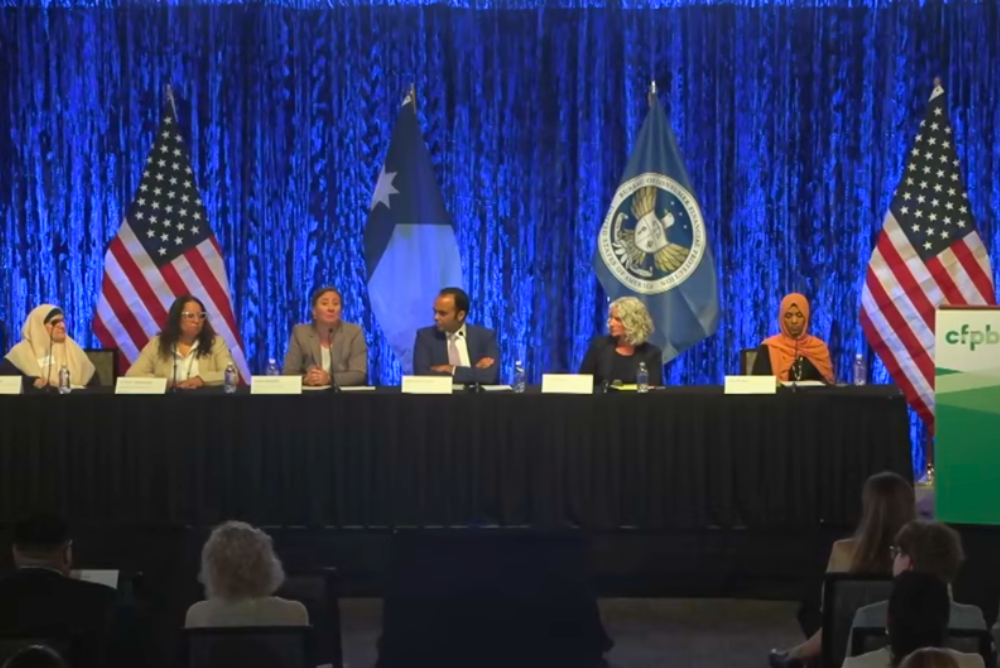Sarah B. Mancini recommends policy reforms to protect aspiring homeowners from deceptive financing
The hearing was held at at 10:00 am Central Time, 11:00 am Eastern Time, on Tuesday, August 13, 2024 at the St. Paul Campus of the University of St. Thomas.

WASHINGTON – Today, Sarah Bolling Mancini, co-director of advocacy at the National Consumer Law Center (NCLC), testified during a Consumer Financial Protection Bureau (CFPB) field hearing on land contract (also known as contract for deed) financing. Mancini joined CFPB Director Rohit Chopra, state and local elected leaders, and fellow legal, advocacy, and policy experts to discuss the challenges that consumers are experiencing with land contracts and other rent-to-own transactions.
“Land contracts and lease-options create a mirage of homeownership that drains wealth from low-income neighborhoods and communities of color and increasingly targets immigrant communities,” said Mancini. “These contracts do not provide a meaningful pathway to homeownership and are instead a costly detour that can burden consumers with the obligation to repair, maintain, insure, and pay taxes on a home without actually giving them a fair chance at wealth building.”
Ahead of the hearing, NCLC released an issue brief with recommendations for the CFPB and state lawmakers to use the tools at their disposal to stop predatory land contract practices.
Recommendations include:
- The CFPB and the Federal Trade Commission (FTC) should issue regulatory guidance and take enforcement actions establishing that certain conduct in land contract and lease-option transactions is unfair, deceptive, or abusive.
- The CFPB, FTC, and state Attorneys General should dedicate significant resources to enforcement actions in land contract and lease-option transactions.
- Legislators at the local, state, and federal level should enact laws designed to increase incentives for success and reduce harms when contracts fail.
NCLC also urged policymakers to alleviate the conditions driving low-income homebuyers to enter into abusive contracts by making small-dollar mortgage loans more accessible. “Low-income households are drawn into predatory transactions precisely because they feel they have no other pathway to becoming a homeowner,” said Mancini.
Related Resources
- Issue Brief: Ways to Prevent Built-to-Fail Land Contracts and Lease-Options From Hijacking the American Dream of Homeownership, Aug. 9, 2024
- Issue Brief: Myths and Facts About Ways to Increase Small Dollar Mortgage Lending, Aug. 9, 2024
- Testimony of Sarah B. Mancini on Alternative Home Financing Before the Senate Banking Subcommittee on Housing, Transportation, and Community Development, July 11, 2023
- Toxic Transactions: How Land Installment Contracts Once Again Threaten Communities of Color, July 14, 2016
Support NCLC
Please support NCLC's work to advance consumer rights and economic justice with a tax-deductible contribution today!
Donate